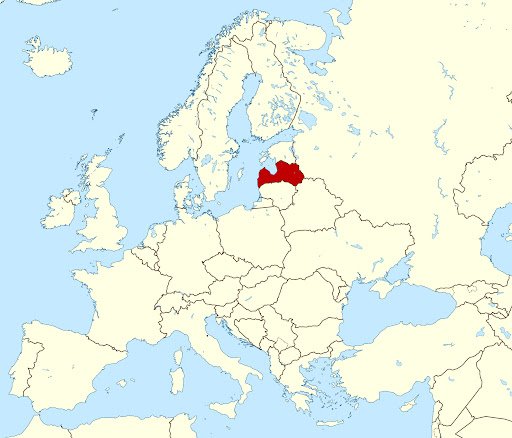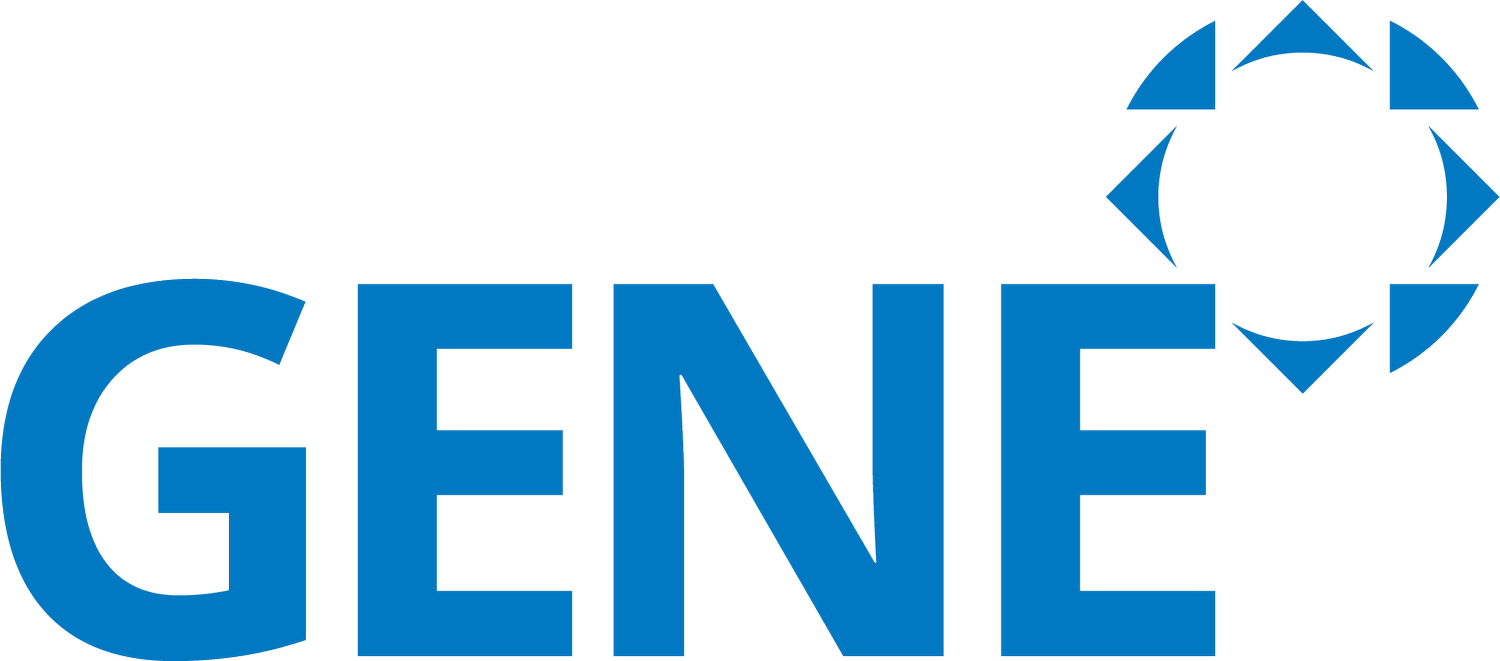
Latvia 🇱🇻
Global Education Profile
GENE participant since 2012.
+ Ministries and Agencies in GENE
Ministry for Education and Science (MoES)
+ Other Ministries and Agencies in GE
The Latvian National Commission for UNESCO together with the MoES coordinates the advisory council “Education for All” that focuses on the implementation of the Education 2030 Framework for Action and SDG 4, including the SDG 4.7 on global citizenship and ESD. The Council facilitates co-operation and coherence of activities between ministries and other institutions, local municipalities, the private sector, non-governmental and international organisations. It develops proposals for development of crucial educational policies in order to ensure inclusive, equitable and high-quality education and to promote lifelong learning and sustainable development.
+ Civil Society and Youth Platforms
LAPAS - The Latvian Platform for Development Cooperation
National Youth Council of Latvia
Interdisciplinary National Coalition for Implementation of the Sustainable Development Goals lead by the Latvian Platform for Development Cooperation unites non-governmental and governmental institutions, municipalities and individuals. The coalition shares relevant information, opportunities for cooperation and best practices. It also involves education institutions, as well as other organizations that provide training activities on SDGs.
+ Global Education documents
Education Development Guidelines 2021-2027
+ Concepts and definitions
Different concepts are used: Development Education, Global Education, Education for Sustainable Development, citizenship/ civic education, peace education etc. Since the establishment of the UN Agenda 2030 and Sustainable Development Goals, the Global Citizenship Education and Education for Sustainable Development have become widely used.
Global Education – an active learning process which, based on the principles of solidarity, equality, inclusion, and cooperation, raises the public awareness of development processes in the world and facilitates participation of individuals and organisations in addressing of current local and global issues. (from Development Cooperation Policy Guidelines for 2021-2027)
Development education - an active learning process, founded on values of solidarity, equality, inclusion and co-operation. It enables people to move from basic awareness of international development priorities and sustainable human development, through understanding of the causes and effects of global issues to personal involvement and informed actions. Development education fosters the full participation of all citizens in world-wide poverty eradication, and the fight against exclusion. It seeks to influence more just and sustainable economic, social, environmental, human rights based national and international policies. (DE Forum definition, 2004, LAPAS)
Definition of Global Education taken from the Maastricht Declaration on Global Education in Europe
+ GE Specific Budget
GE funding by the MFA 72 114 Euro in 2018
Source: GENE Country report
+ EU Presidency Last / Next
2015/2028
+ GE in formal education
The new Education Development Guidelines 2021-2027 have been developed defining goals and sub-goals for Latvia’s education system. One of the strategic goals is the provision of modern and high-quality education. In general education particular emphasis is on a competence-based approach, where global education and global citizenship are included transversally. A National Action Plan to design the process of implementation is being developed, as well as a new educational reform is being planned.
MoES supports the implementation and activities of the global movement “Education for All” and implementation of development cooperation in education by annually allocating funding to the UNESCO Latvia.
The paradigm of global education and education for sustainable development is reflected in Latvia’s new competence-based general education curriculum. The learning process is built on attitudes and values for responsible citizenship - ability to express one’s position on social, economic and political processes, take responsible decisions and have a positive impact on welfare locally and globally, including recognise injustice and act to prevent it, treat with tolerance different cultures and their heritage.
Term “Global education” is not included in the curriculum for secondary school content, however, it is presented as an outcome of general level of learning. For example, ability to assess the impact of territorial change and modernisation of society in order to explain the development, causes, consequences and role of supranational organisations in addressing economic and political issues. Curriculum includes competences such as critical thinking, civic responsibility, problem solving, tolerance, among others.
National Centre for Education is responsible for curricula.
A new competence-based general education curriculum, changing teaching approach and modernising teaching/learning materials was developed and introduced in pre-school education starting with the 2019/2020 academic year and further have been gradually implemented in all stages of general education by 2022/2023.
The new curriculum includes knowledge, understanding and skills in the fields of learning, transversal skills, values and virtues and are expressed as competences. In social and civic learning area upon completion of secondary education:
pupils explain the events of the world, their causal relationships and the ideological basis in the past and present
express their position on social, economic and political processes, engages in them,
take responsible decisions related to their career and future opportunities,
have a positive impact on welfare locally and globally,
recognize injustice and act to prevent it,
treat with tolerance different cultures and their heritage
Organization for Economic Co-operation and Development (OECD) Programme for International Student Assessment (PISA) 2018 study included Global Competence. The PISA 2018 Global Competence study showed the following results for Latvia:
93% of students use two or more languages on daily basis;
53% of students would like to explore other cultures;
75% of students are aware of global challenges, for example, famine and poverty;
72% of students are aware of gender equality challenges in different parts of the world;
75% of students are aware of causes of climate change;
76% of students are aware of the effect of economic development on environment.
+ GE in other sectors
In cooperation with The Latvian National Commission for UNESCO, The National Library Latvia and the Library Association of Latvia, a comprehensive adult education initiative has started – “Sustainable Development of Libraries and Society: We Create This World Ourselves”. While using global citizenship education approach, the project encourages to learn about all areas of the UN Sustainable Development Goals, to share good practice examples and understand how to participate in achieving these goals. Libraries are regarded as potential centres for adult education on global issues, encouraging society to explore the relationship between local and global challenges: thinking about the transfer of knowledge, cultural heritage and traditional skills to the next generations; discussing climate change and the risk of loss of biodiversity; talking about the development of an inclusive and just society; planning ways to promote civic participation and sustainable development of community.
+ GE in nonformal education
Development of social campaigns for global good was also the focus of the Baltic Youth Forum “Going further along the Baltic Way” supported by the MoES and other stakeholders. The forum engaged youngsters in discussion on common values and challenges in the Baltic region today – human rights, environmental sustainability, and preservation of cultural heritage –, thus keeping in mind their importance in the context of UN Sustainable Development Goals. During the event, youngsters had an opportunity to participate in lectures, workshops, simulation game and to acquire knowledge and skills to organize a social campaign.
NGO “Centre for Education Initiatives” (CEI) was founded with the goal to promote changes in the community’s perception about the role of education in creating human rights society and to promote the development of the further education in Latvia without reference to people’s nationality, race, social status, religion and sex, as well as the physical and mental health. The Centre implements various projects on the topics of SDGs.
Founded in 1993, the NGO Green Liberty contributes to the development of a society, where people live in harmony with each other and the environment. Green Liberty works in global education via projects that are focused on media, solidarity economy, fair trade, and sustainable tropical fruits and supermarket private label products. It organizes seminars, workshops and lectures. People are actively engaged in discussing development issues, informing them about interconnections between development and environmental issues, and global impacts of local processes.
+ GE in Initial Teacher Education
The UNESCO Associated School Project Network in Latvia organizes special seminars, workshops and other activities for teachers, principals, students related to different dimensions of global citizenship education and education for sustainable development. The project theme is related to different aspects of value education, environmental education, principles of human rights and promotes safeguarding the world’s cultural and natural heritage.
The requirements for teachers are based on the Regulation of the Cabinet of Ministers of Latvia No. 569, adopted on 11 September 2018, “Regulations regarding the education and professional qualification required for teachers, and the procedure of teachers’ professional competence improvement”, which define the education and professional qualifications necessary for a teacher and the procedure for the improvement of professional competence of teachers. Higher educations, for example, University of Latvia, University of Liepāja, Daugavpils University, offer study courses in teachers’ study programmes that include topics on global education and education for sustainable development.
Higher education institutions, which are implementing initial education programmes for teachers, supported the inclusion of study course “Introduction to the education for sustainable development” in bachelor’s level programmes for teachers and study course “Education for sustainable development” in master’s level programmes for teachers. The implementation of these study courses remain the choice of particular higher education institutions.
Information on professional development possibilities for teachers is available at the webpage of the National Centre for Education.
+ Educational Resources on GE
Citizenship Education in a diverse Europe: Guidelines for Teacher Educators
School manuals were translated in Latvian and produced for online use and as printed versions:
The methodological material “It’s Time for Sustainable Development Goals!” has been created by the Latvian National Commission for UNESCO based on the UNESCO publication “Education for Sustainable Development: Education for Sustainable Development Goals (learning objectives)” (2017). It summarizes methods, approaches, topics, and ideas for implementing the UN Sustainable Development Goals in education.
+ GE Civil Society Actors
Creative association for youth TREPES
Tautskola 99 Baltie zirgi - www.drustutautskola.lv, www.brivaskola.lv
+ Overall ODA Budget
31.24
Figures in million USD (current prices). All figures rounded to two decimal points. Data: OECD (2020), Net ODA (indicator). doi: 10.1787/33346549-en (Accessed on 13 January 2020).
+ Development Policy Documents
- Voluntary National Report: Connector. Case of Latvian CSOs
+ Agenda 2030
Latvia – Implementation of the SDGs (Report to the UN High Level Political Forum on Sustainable Development 2018) Latvia 2030 - Sustainable Development Strategy of Latvia | Diversity of Cultural Expressions (unesco.org)
Public opinion on issues related to Global Education
This website was created and maintained with the financial support of the European Union and the Ministries and Agencies that support GENE. Its contents are the sole responsibility of GENE and do not necessarily reflect the views of the European Union.


